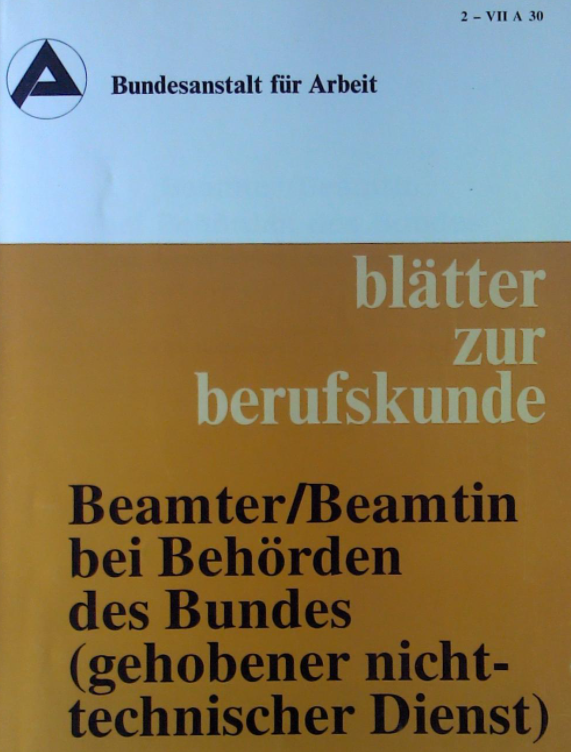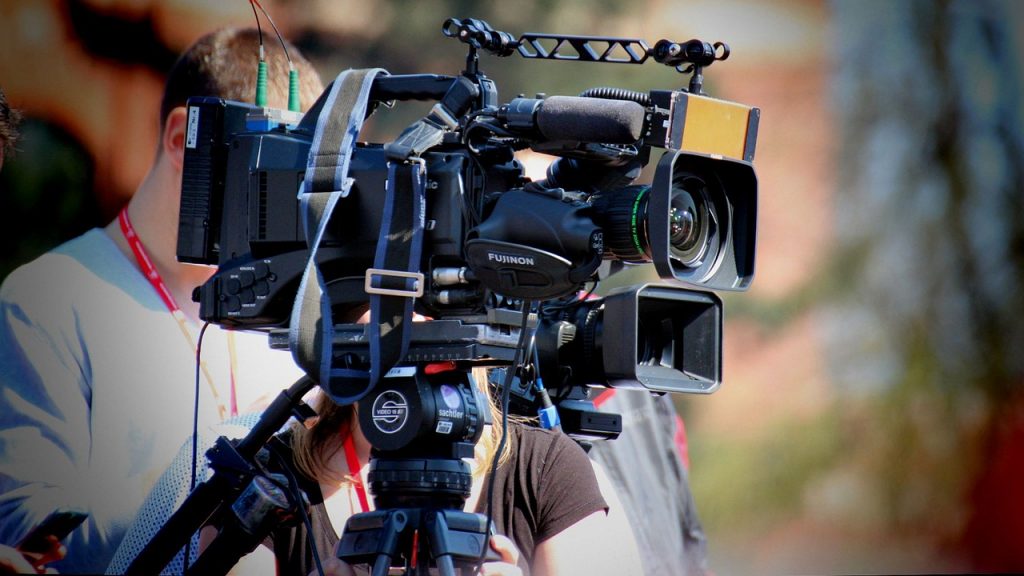
Do you still remember the “Vocational Helpsheet”? These brown and white booklets from the Federal Job Centre were THE source of information on “what I want to be when I grow up” – at least at the time when I was tackling this question. A profession was presented in detail in each booklet and the fact that ultimately there were “only” about 700 titles to choose from makes it clear how challenging the choice was.
There were also career orientation days in the schools, but the people in charge there sometimes made things a little too easy for themselves (at least with the girls): “Do you have hobbies?” – “Yes, reading and playing the guitar.” – “Do you like children?” (What 14-year-old says: “Children? Yuck! Keep kids away from me!” So of course the answer was:) – “Yeah, sure!” – “Then become a kindergarten teacher!”
Gender neutrality was still a long way off in the 70s and 80s. One of my classmates, who obviously couldn’t warm to the kindergarten option (despite having successfully completed a recorder course), was given the suggestion of becoming a “medical-technical assistant”. And her parents still thought that wasn’t appropriate for a girl!
It was extremely reckless to take a typing course (for all readers under 40: typewriter – Wikipedia) at the age of 13, just for fun. Because when the career guidance counsellors in the schools found that out, there was no escaping the Office – whatever job there.
While at that time there was a lack of information, imagination and options, today diversity causes confusion. New professions (understood here as a means of earning a living, and (still!) not always with clearly defined training paths and final exams) are constantly emerging, reflecting the times and the search for solutions to current problems. The Corona pandemic brought us social distance managers and one-and-a-half-metre coaches who were supposed to provide optimum conditions for keeping a distance. Will these still exist 5 years from now?
I am absolutely sure about the intimacy coach on the film set and in the theatre. In a radio report on WDR, the director Bernardo Bertolucci was quoted as saying that he had discussed a planned rape scene for the film “The Last Tango in Paris” (shot in 1972) with the leading actor Marlon Brando before shooting, but not with the leading actress Maria Schneider. He said: “I wanted her reaction as a girl, not as an actress.“ Since this was certainly not an isolated case, I find the function of the intimacy coach, who is supposed to ensure that all parties involved are informed and included, a very sensible solution.

With the sensitivity reader, the discussion is different again, and there are different facets. If a hearing author writes a book with a deaf character in it, it makes sense for a deaf person to read the text and check how far the details of the story match the deaf experience. That such a check also makes sense with regard to nationalities, religions, sexual orientation and “political correctness” in general is widely agreed in non-fiction, but in fiction it is controversially discussed.
Some book publishers seem to be worried that sensitivity readers could mean the “end” for politically incorrect novel heroes. I understand the concern, but the risk seems limited to me. After all, there is a difference between authors who, with an artistic goal, develop a character who behaves in a discriminatory way or swears in a politically incorrect manner – and those who didn’t really notice and are subsequently surprised by the corresponding protests.
Of course, the zeitgeist also plays a role in these questions, as the discussions about new editions and new translations of older works demonstrate. For me personally, the argument “At the time when the book was written, that was still quite normal!“ is not really valid. Specifically: I am a big supporter of the “South Sea King” in new editions of the Pippi Longstocking books!
There is also a lot happening in the technical field: take the drone pilot, for example – certainly a profession with a future. The German Armed Forces already offer training as part of an officer’s career, and in view of the many possible uses of drones in the inspection of bridges, wind turbines and radio masts, as well as in security checks, civilian vocational training will not be long in coming. And that is a good thing! Every drone in the air that is controlled by someone who knows what they are doing is a great relief to me!
My personal favourite among the new professions is – waste designer! With a degree in industrial design, engineering or materials science as a basis, waste designers will hopefully accompany us into a new phase of recycling and upcycling waste. There is certainly still a lot possible, you just have to know what – and how!
Peace researcher is not a new profession – but due to the current sad developments, there could be more of them, if it were up to me… Maybe it’s time for a special advanced course of studies “Dealing with megalomaniac heads of state”?
There are certainly many more interesting new professions, I don’t claim to be exhaustive here! And I hope that today’s career orientation days in schools will take a closer look at which of the pupils might actually be suitable for such an important and responsible profession as kindergarten teacher!
Next Friday, fellow Harlequin RGE will devote himself to extinct professions!
Original text: BBR
English translation: BCO
Bildquellen
- Blätter zur Berufskunde: Bundesanstalt für Arbeit / BBR
- camera-operator-g53b19aff8_1280: Techline / Pixabay

